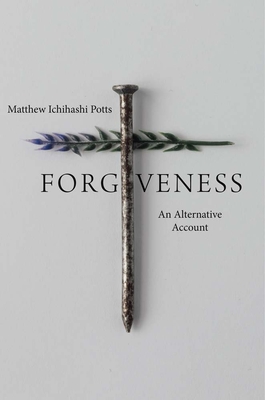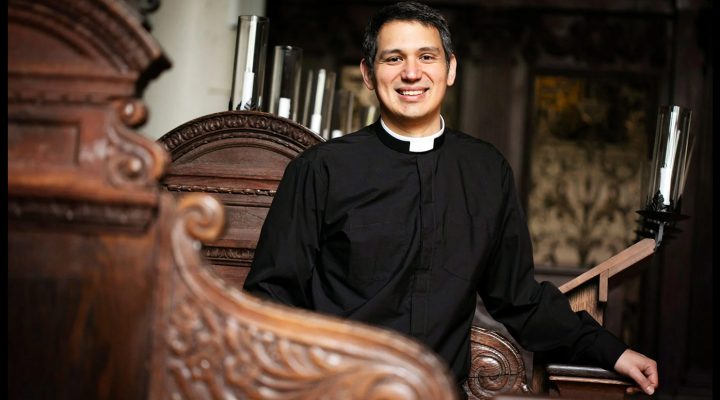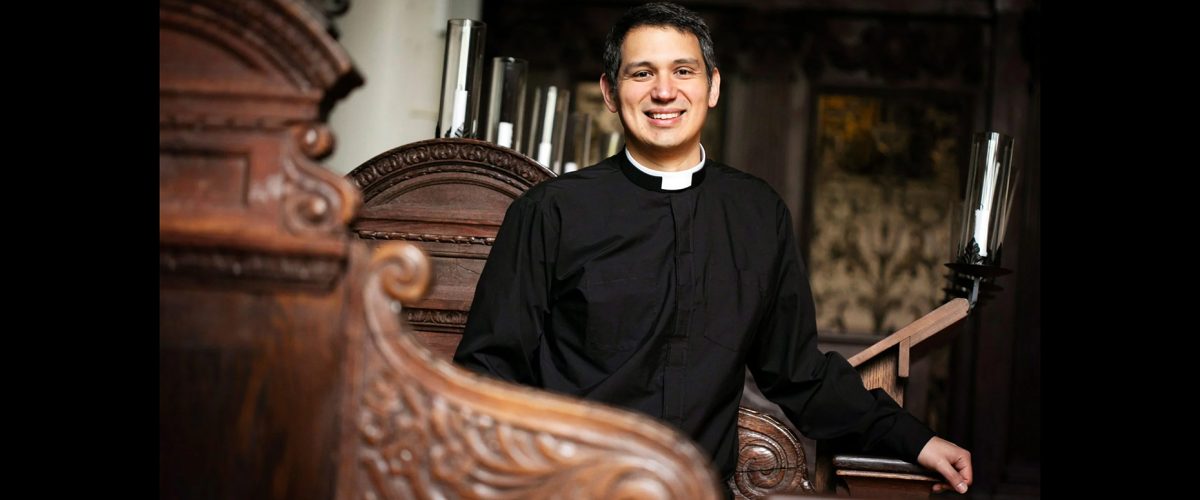I’ve been diving deep on forgiveness lately. A few weeks back, my friend Ralph Douglas West and I led a Janterm retreat for Truett Seminary students and pastors where we read works including Anne Lamott’s Traveling Mercies (home to the brilliant essay “Forgiveness,” about Annie’s attempts to forgive a slender yet cupcake-baking mom at her son’s school) and my novel The Prodigal, which retells the parable about a love that can somehow look past even great offenses.
I’ve been prepping a sermon on Paul Thomas Anderson’s Magnolia for a film and faith series at Ecclesia Houston, revisiting that painful and powerful movie about badly broken characters, one of whom asks, “What can we forgive?” even as he is demonstrating how we might. And I recently read and reveled in the new book from Matthew Ichihashi Potts, Forgiveness: An Alternative Account.

Greg Garrett
Matt is the Plummer Professor of Christian Morals and Pusey Minister in the Memorial Church at Harvard, and Forgiveness employs literature, theology and recent events like the shooting at Mother Emanuael AME Church in Charleston to seek answers to essential questions like these: “What would a just and livable forgiveness look like? What if forgiveness allowed for anger and rage and grief?”
Matt was kind enough to engage with me at length about the new book. I commend his responses — and his book — to you as essential reading in a world badly needing guidance on why and how we might offer forgiveness.
Greg: As a scholar, teacher and priest, you’ve wrestled with the question of forgiveness in recent years. You also singled out your family in the Acknowledgments as helping you understand what love and forgiveness look like. I wonder: What have each of these locations taught you?
“One way I think about forgiveness is that it’s the judgment love renders.”
Matt: One way I think about forgiveness is that it’s the judgment love renders. We tend to think of forgiveness as undoing wrong, as erasing it somehow. But in fact, to say, “I forgive you” is to imply that there is something that needs forgiving. To say, “I forgive you” is also to say, “You have wronged me.” But in rendering that judgment, forgiveness tries to figure out what loving the wrongdoer would look like.
And that’s why family is such a foundational setting for my understanding of forgiveness. A loving family can accommodate anger sometimes, it can deal with hurt honestly but not spitefully or vengefully, it can tell the truth about wrongdoing. In some cases, it might even accommodate estrangement; we can love someone who perhaps we can no longer bear to keep close in our lives, because of the pain they cause.
These things, some of which may be regrettable, can still be loving. And so family becomes an important frame for my thinking about forgiveness.
As a scholar and teacher, I’ve wrestled with critiques of forgiveness mostly. Because conventional notions of forgiveness tend to identify it with relinquishing anger or reconciling with offenders, many of those who are concerned with advocating for justice worry (I think quite rightly) that forgiveness takes away victims’ right to righteous anger, or that it forces them to reconcile unsafely and prematurely. As I said, I think those critiques are valid, but I do think we can imagine forms of loving judgment which express anger or resist hasty reconciliation. And those forms of loving judgment, in my opinion, should be understood as forgiving.
As a priest, I’ve been less frequently invited to adjudicate interpersonal conflicts or foster interpersonal forgiveness than I have been called upon to encourage people to trust in God’s forgiveness. Most people, myself included, have bitter regrets and sadnesses that they carry with them, and helping them to judge themselves lovingly — that is, helping them to be honest about their mistakes without descending into spirals of shame or despair, as well as helping them to believe that God also judges them lovingly too — has been the primary pastoral task I’ve encountered around forgiveness.
Greg: Christians are sometimes expected, as you note from the story of mourners at Mother Emanuel, to immediately model forgiveness, which often means leaving aside the essential step of lament. Can you talk about the relationship of those two parts of Christian — and human — experience?
“Forgiveness has to tell the truth about the past, about what has been done and what cannot be undone.”
Matt: Forgiveness has to tell the truth about the past, about what has been done and what cannot be undone. In that sense, I think it is — or ought to be — a form of lament. I have bitter regret or deep remorse, but forgiving myself isn’t a way of undoing what’s been done. Rather, it’s a way of accepting what’s been done and trying to live with it.
A lot of our responses to wrongdoing are attempts to undo the past. We retaliate or seek vengeance in order to balance the scales of justice, to make our enemies pay. But even if they pay dearly, we can’t recoup any cost. Similarly, facile forms of forgiveness promise to undo the past. But that’s magical thinking.
Forgiveness is accepting that I can’t undo the past, neither by retaliatory vengeance nor by any magical thinking. All I can do is accept what has been done and try to imagine what new life might look like going forward.
In my book, I write that forgiveness is a form of mourning, and this is what I mean. It’s learning to live with a loss we can’t recover, and forgiveness is good in the way that mourning is good, not because it’s pleasant or easy, but because it’s necessary in moving forward.
Greg: What do Jesus and the Christian tradition teach us about how forgiveness can — or should — operate? What does the process look like, and how does it affect those involved in that process?
“Forgiveness is part of loving one’s enemy.”
Matt: These are big questions! The answer to this question, I guess, is just my book. To be brief, though, I see forgiveness as part of Jesus’ Sermon on the Mount teaching to love one’s enemy. Forgiveness is part of loving one’s enemy.
But what’s important is that for Jesus, loving isn’t primarily an affective category. It’s not fuzzy warm feelings, it’s not even trust or reconciliation necessarily. It’s acting as if my enemy is a beloved child of God, because he is. It may be that I remain angry with a beloved child of God, or mistrust a beloved child of God, or refuse to reconcile with a beloved child of God who refuses to repent or repair with me. I can do those things lovingly. But I probably can’t seek to annihilate or desecrate or humiliate a beloved child of God.
The other thing that’s crucial from the Christian tradition, especially in the Augustinian tradition as it is received both by Roman Catholics and Protestants throughout the Christian West, is the idea that every one of us humans also depend upon the forgiveness of God.
I’ve learned a lot from the prison writings of Dietrich Bonhoeffer, especially his unfinished ethics, and his concern that Christian ethics of all sorts — including any and every ethics of forgiveness — almost always devolve into programs for self-justification, guidelines of good and evil. When is an act justified, when is it not; when is it right, when is it wrong; when is it good, when is it evil?
For Bonhoeffer, the problem is both simpler and more demanding than that. When we’re faced, as he was, with an ethical dilemma, we do not choose the lesser of two evils and then claim ourselves justified or vindicated by having made the right or ethical choice. Rather, we choose the lesser of two evils and then confess that we have indeed done evil, and then we repent with faith in God’s mercy to forgive us.
Any moral action, for Bonhoeffer, depends upon us trusting in God’s forgiveness, and I think this crucial when — as I discuss in the book — we think about how forgiveness might factor into situations of massive and indisputable evil, such as chattel slavery or genocide.
Greg: How might forgiveness operate differently among different groups of people? Should I — as a white middle-class Christian male — have a different set of forgiveness issues than a pueblo dweller in Northern New Mexico or a Black trans female in Detroit? Or does forgiveness transcend identity?
“Forgiveness is about loving one’s enemies and rendering loving judgment.”
Matt: Forgiveness is about loving one’s enemies and rendering loving judgment. Because wrongdoing is part of every person’s life, I wouldn’t say it transcends identity, necessarily, but I think each of us in our own identities will reckon with it.
Of course, forgiveness will refract differently depending on one’s social location, but wherever a person tries to love their enemy or judge their offender lovingly, they’re engaged in the business of forgiving. Anger is a big thing. In much of the literature, forgiveness is seen as the opposite of anger, and I regard this as a significant mistake. We can both love and be angry, and that anger serves an important moral purpose.
I also worry that the association of forgiveness with anger-abatement follows lines of identity in troubling ways. We might ask, for example, who is served when forgiveness is equated with anger-abatement. When you can’t be both angry and forgiving, then peaceful protesters in the streets, for example, folks loudly and angrily but peacefully calling us to a better and more just world, will be read as unforgiving and therefore morally impaired somehow. Meanwhile, the powerful folks these protesters are calling to account can ignore their cries as unforgiving and morally inadequate, rather than reckoning with their justified anger.
 So what anger is and does, how much we allow others to feel anger, how entitled we allow others to be to their anger, these things do absolutely operate differently depending on one’s social location, and a forgiveness that accommodates anger would also better accommodate and honor the anger of those who are righteously entitled to it.
So what anger is and does, how much we allow others to feel anger, how entitled we allow others to be to their anger, these things do absolutely operate differently depending on one’s social location, and a forgiveness that accommodates anger would also better accommodate and honor the anger of those who are righteously entitled to it.
I also want to be clear that the account I’m giving is a Christian one. Although the concept of forgiveness in general would benefit from being decoupled from associated acts like anger-abatement or reconciliation, the form of forgiveness I outline in the book follows a Christian logic. I wouldn’t expect a person who is not Christian to find it compelling or appealing as I have described it.
Greg: Matt, thanks so much for your time and these responses to my questions. One last, since we both share a love of exploring what literature and culture have to tell us about the life of the spirit. You explore Beloved and Priam’s visit to Achilles in The Iliad, among other texts, as powerful literary examples of forgiveness. What are some other favorite literary and pop culture examples? Who’s your favorite theologian or philosopher exploring forgiveness?
Matt: I look at a few other books in mind; Kazuo Ishiguro’s The Buried Giant, Marilynne Robinson’s Gilead, and Louise Erdrich’s LaRose. All these I really love. Ishiguro is a favorite on forgiveness; nearly all his books deal with forgiveness and repentance in challenging ways. I co-host a Harry Potter podcast called Harry Potter and the Sacred Text, and while I have some ambivalence about the Harry Potter series, I do think it contains some interesting moments that might illuminate forgiveness. The philosopher Hannah Arendt is pretty good on forgiveness, as is the French philosopher Vladimir Jankélévitch. And I love this line from Hans Urs von Balthasar’s Theo-Drama: “Forgiveness does not come as a return for some achievement: it comes because any such achievement was impossible.”
Greg Garrett teaches creative writing, film, literature and theology classes at Baylor University. He is the author of two dozen books of fiction, nonfiction, memoir and translation, including the critically acclaimed novels Free Bird, Cycling, Shame and The Prodigal. He is one of America’s leading voices on religion and culture. One of his most recent nonfiction books is In Conversation: Rowan Williams and Greg Garrett. His latest book, A Long, Long Way: Hollywood’s Unfinished Journey from Racism to Reconciliation, is hot off the presses. He is a seminary-trained lay preacher in the Episcopal Church. He lives in Austin with his wife, Jeanie, and their two daughters.
Related articles:
Tim Keller wants us to talk about forgiveness
25 years later, grace and forgiveness still rise from rubble of the Oklahoma City bombing
Prescription for a divided nation: Love and forgiveness | Opinon by Greg Garrett


